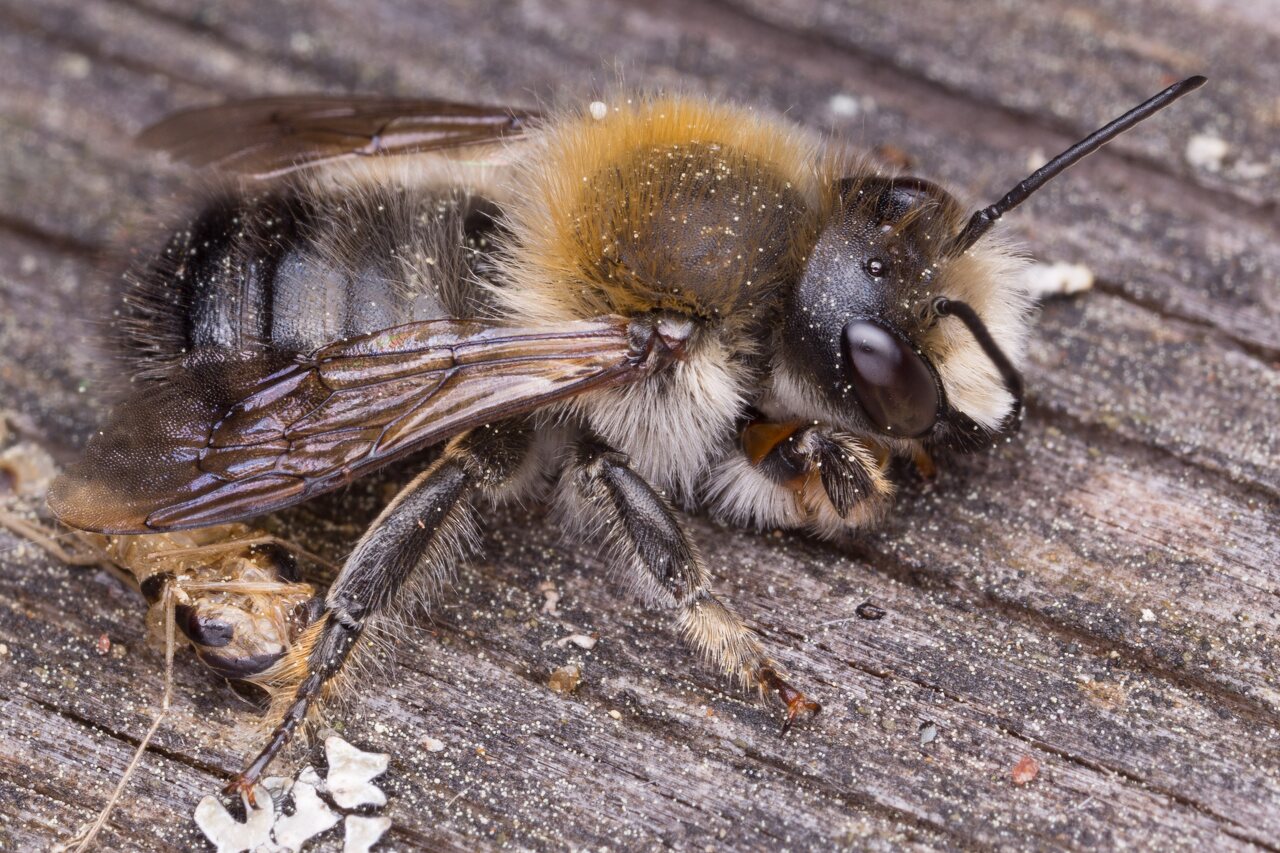
Megachile willughbiella male · lapkirpė bitė ♂
- Willughby's leaf-cutter bee, Rosecutter-bee, Willow-bee
- Garten-Blattschneiderbiene, Totholz-Blattschneiderbiene, Große Garten-Blattschneiderbiene
- laukkuverhoilijamehiläinen
- miesierka ziemna
- stocktapetserarbi
- en.wikipedia.org/wiki/Megachile_willughbiella
- www.naturespot.org.uk/species/leafcutter-bee
- gbif.org/species/1335556
The species is widely spread across western Europe between Finland, Lithuania and Spain, including Britain and Ireland. Megachile willughbiella is a leafcutter bee found in gardens and brownfield areas especially in cities. The nest is built in soil or in wood; the cells are made of leaves. Pollen is collected from a wide variety of flowers including Asteraceae, Fabaceae and Onagraceae, with a preference for Campanulaceae (bellflowers).
Female body size 12–15 mm, male 13–14 mm. Male with long abdominal hair, yellow-brown, never reddish. Solitary nesting in existing above-ground cavities, such as beetle burrows and cracks in walls, but also self-dug burrows in rotten wood, under bark and in the root area of rotten tree stumps. They also like to populate "insect hotels". A communal nesting pattern can sometimes be observed, in which several females share one nest entrance. The cigar-like brood nests typical of the species are built from oval pieces of leaf that are cut out of the leaves of various shrubs and trees within using the mandibles. Megachile willughbiella is not specialized in collecting pollen from specific plants (polylectic). Pollen is transported to the nest using an abdominal brush. The larva spins a cocoon and overwinters as a resting larva.
‥
0 comments
Add a comment